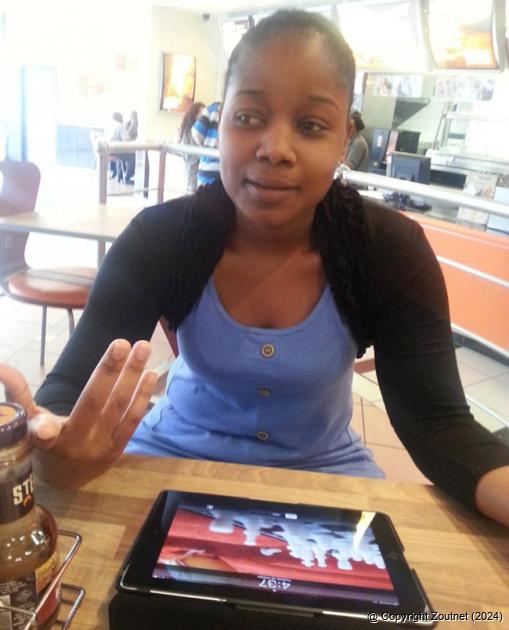

ADVERTISEMENT:

Miss Masindi Clementine Mphephu (24).
Masindi Mphephu kingship case to start in High Court on Monday
The case in which the 24-year-old Masindi Clementine Mphephu contests the kingship of the Vhavenda is scheduled to start on Monday (31st) in the Thohoyandou High Court.
The court case may, however, be dominated by technical legal issues. The applicants have asked the court to separate the issues and first rule on the legality of the processes followed and jurisdiction. This request is opposed by the defendants.
The case dates back to 2012, when Masindi Clementine Mphephu filed papers claiming that she should have been next in line for the throne but was overlooked because of gender discrimination. Not long before that, President Jacob Zuma announced that the new king of the Vhavenda would be Toni Mphephu Ramabulana. Masindi is the only child of the late paramount chief of the Vhavenda, Tshimangadzo Mphephu (who ruled under the name Dimbanyika).
There are two applicants in the case and Masindi is joined by her uncle, Mbulaheni Charles Mphephu, eldest son of the late Patrick Mphephu. He argues that, should Masindi not be considered for the kingship position, he should be next in line. They applied to the court to set aside the decision of the president of South Africa and the premier of Limpopo to recognise Toni Mphephu as king.
The respondents in the case include Toni Mphephu Ramabulana, President Jacob Zuma, the Limpopo premier as well as the national and provincial houses of traditional leaders.
In the affidavits and replying affidavits filed, the parties disagree on the procedures followed to appoint a new heir. Mbulaheni and Masindi believe that, because Toni Ramabulana was appointed as ndumi to his half-brother Dimbanyika, he should not have been considered for the kingship position. The two applicants also argue that Toni Ramabulana does not come from the right dzekiso house. The dzekiso wife (or candle wife) is appointed according to certain customs and there may be more than one candle wife to make provision for cases where the first candle wife does not bear children. (This is, however, disputed by some of the respondents).
In one of the latest affidavits filed, Mbulaheni Mphephu asks the court to separate the issues and give guidance in terms of the legal issues at stake. “Proceeding on this basis is plainly convenient as it may avoid the need to refer disputes of fact to oral evidence and the leading of expert witnesses,” he states.
The applicants ask the court to rule on several legal issues, which include the High Court’s jurisdiction in the matter, whether claims have prescribed in terms of certain Acts and whether there is an investigation pending with the Commission on Traditional Leadership Disputes and Claims. The court is also being asked to determine whether the president’s decision to acknowledge Toni Mphephu should first be challenged and whether the legislation was in place to cause it to be a lawful decision.
The outcome of the case may depend on the court’s interpretation of the rule of male primogeniture. The applicants argue that the Bill of Rights places an obligation on the government to develop customary law in line with the Constitution. “As a woman, the first applicant’s claim to the throne will be barred by the rule of male primogeniture. The only claim to title to be determined, in that event, will be that of the second applicant,” Mbulaheni Charles Mphephu states in his affidavit.
News - Date: 31 August 2015

Recent Articles
-

'Pervert case' back in court
25 April 2024 By Victor Mukwevho -

Wetteloosheid op paaie wys die krake in plaaslike wetstoepassing
25 April 2024 By Andries van Zyl -

Bestuurder hardloop weg na hy deur heining bars
25 April 2024 By Karla van Zyl -

'Rambo' Tshivhase hailed as a brave, intelligent leader
25 April 2024 By Victor Mukwevho
Search for a story:

ADVERTISEMENT


Anton van Zyl
Anton van Zyl has been with the Zoutpansberger and Limpopo Mirror since 1990. He graduated from the Rand Afrikaans University (now University of Johannesburg) and obtained a BA Communications degree. He is a founder member of the Association of Independent Publishers.

ADVERTISEMENT:

